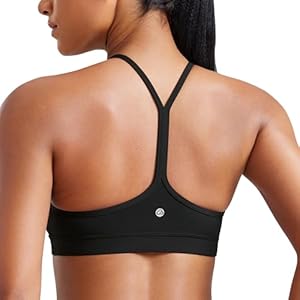
You know the importance of maintaining a balanced diet, but are you getting enough of the top five nutrients every woman should prioritize? Ensuring you have adequate levels of iron, calcium, vitamin D, omega-3 fatty acids, and folate is crucial for your overall well-being. These nutrients play key roles in supporting various bodily functions, from bone health to immune system function. So, are you getting enough of these essential nutrients daily to support your health and vitality?
Iron
Iron plays a crucial role in maintaining overall health, especially for women. It’s a vital mineral that helps in the production of hemoglobin, the protein in red blood cells responsible for carrying oxygen throughout your body. As a woman, ensuring you have an adequate intake of iron is essential for preventing anemia, a condition characterized by low levels of red blood cells.
Including iron-rich foods in your diet, such as lean meats, poultry, fish, beans, and fortified cereals, can help meet your daily iron requirements. Additionally, pairing these foods with vitamin C-rich options like citrus fruits, bell peppers, or strawberries can enhance iron absorption in your body.
During certain life stages like pregnancy, menstruation, or intense physical activity, women may need higher amounts of iron to support their increased blood volume and energy levels. If you suspect an iron deficiency, characterized by symptoms like fatigue, weakness, pale skin, or brittle nails, consult with your healthcare provider for proper diagnosis and treatment. Remember, maintaining adequate iron levels is key to supporting your overall well-being.
Calcium
To maintain strong and healthy bones, ensuring an adequate intake of calcium is important, especially for women. Calcium is a crucial mineral that plays a significant role in bone health. Women, in particular, are more prone to conditions like osteoporosis, making it essential to meet their daily calcium needs. Calcium not only supports bone density but also aids in muscle function, nerve signaling, and hormonal balance.
Incorporating calcium-rich foods into your diet is key. Dairy products like milk, yogurt, and cheese are excellent sources of calcium. Additionally, leafy green vegetables such as kale and broccoli, as well as fortified foods like orange juice and tofu, can help boost your calcium intake. If you struggle to meet your daily requirements through diet alone, consider taking calcium supplements after consulting with a healthcare provider.
Vitamin D
Ensuring an adequate intake of Vitamin D is crucial for women to support overall health and well-being, particularly in relation to bone strength and immune function. Vitamin D plays a vital role in calcium absorption, which is essential for maintaining strong bones and teeth. Without enough Vitamin D, your body may struggle to absorb calcium efficiently, increasing the risk of bone disorders like osteoporosis. Additionally, Vitamin D is known to modulate the immune system, potentially reducing the risk of autoimmune diseases and aiding in fighting infections.
Sunlight is a primary source of Vitamin D, but factors like sunscreen use, skin pigmentation, and limited sun exposure can lead to deficiencies. In such cases, incorporating Vitamin D-rich foods like fatty fish, egg yolks, and fortified dairy products into your diet is essential. If you’re unable to meet your Vitamin D needs through sunlight and diet alone, consider consulting a healthcare provider about supplements to ensure you maintain optimal levels for overall health.
Omega-3 Fatty Acids
Supporting your overall health, incorporating Omega-3 Fatty Acids into your diet is essential for women. Omega-3 fatty acids are a type of polyunsaturated fat that plays a crucial role in various bodily functions. These essential fats are known for their anti-inflammatory properties, which can help reduce the risk of chronic diseases such as heart disease, arthritis, and even depression.
Omega-3 fatty acids are divided into three main types: ALA (alpha-linolenic acid), EPA (eicosapentaenoic acid), and DHA (docosahexaenoic acid). ALA is primarily found in plant sources like flaxseeds, chia seeds, and walnuts. EPA and DHA, on the other hand, are mainly found in fatty fish like salmon, mackerel, and sardines.
Including sources of Omega-3 fatty acids in your diet, such as fish or plant-based alternatives, can support brain health, reduce inflammation, and promote heart health. Aim to incorporate these beneficial fats into your meals regularly to reap their numerous health benefits.
Folate
Incorporate Folate into your diet for optimal health and well-being. Folate, also known as vitamin B9, plays a crucial role in various bodily functions, especially for women. This essential nutrient is vital for DNA synthesis, red blood cell production, and supporting overall cell growth and division.
For women of childbearing age, folate is particularly important as it can help prevent neural tube defects in developing fetuses during pregnancy.
Ensuring an adequate intake of folate is relatively easy as many foods are naturally rich in this nutrient. Leafy green vegetables, legumes, fruits, nuts, and fortified cereals are excellent sources of folate. However, some women may require supplementation, especially during pregnancy or if there are concerns about inadequate dietary intake.
Best Sellers














